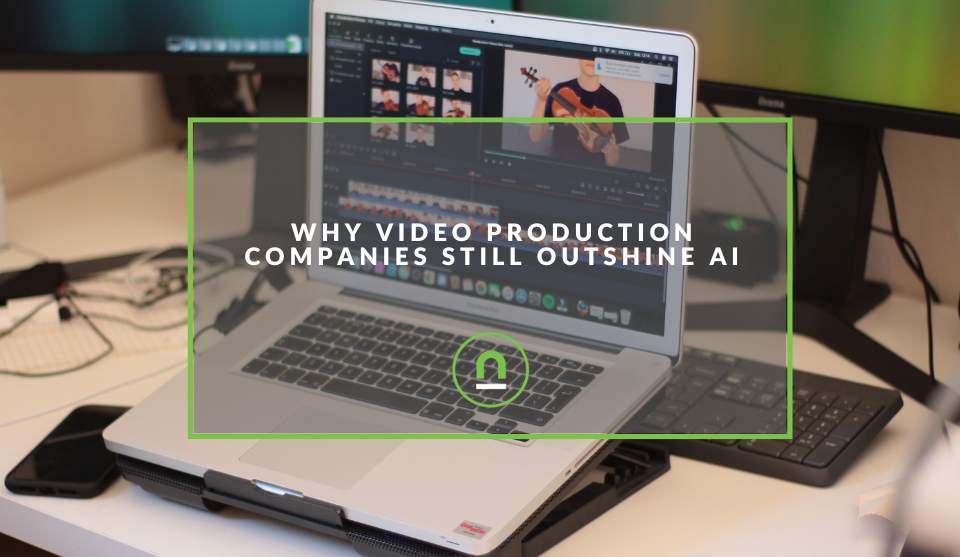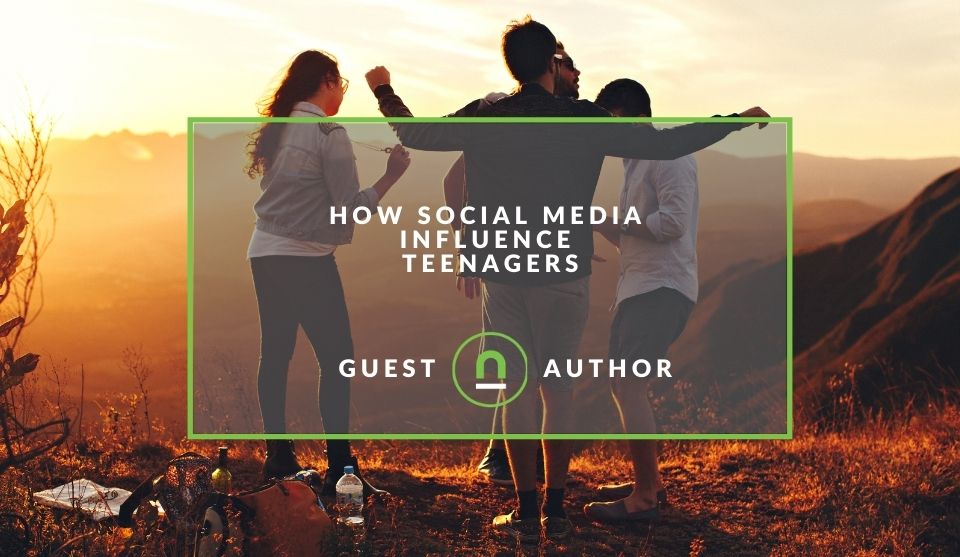Recent posts

nichemarket Advice
Why Video Production Companies Still Outshine AI
24 December 2025

Press Releases
Where You Can Find International Remote Jobs For South Africans
23 December 2025

Money Talks
Why Cross-Border Payments Are Slow, Tedious, and Expensive
17 December 2025

Money Talks
The Rise Of Trading Platforms In South Africa
16 December 2025
Popular posts
Extravaganza
Trending Music Hashtags To Get Your Posts Noticed
24 August 2018
Geek Chic
How To Fix iPhone/iPad Only Charging In Certain Positions
05 July 2020
Extravaganza
Trending Wedding Hashtags To Get Your Posts Noticed
18 September 2018
Money Talks
How To Find Coupons & Vouchers Online In South Africa
28 March 2019
How Social Media Influence Teenagers
13 April 2021 | 0 comments | Posted by Melissa Mauro in Parental Guidance
Social networks have become one of the most controversial phenomena of our time. Doctors, psychologists, sociologists, and teachers worldwide do not stop arguing about their benefits and harms for the modern generation - and of course, there cannot be a single correct opinion.
People of all ages create social profiles and are quickly involved in life on the other side of the screen - however, there is one particular category of users who are particularly affected by social networks.
Yes, these are teenagers. And in this article, we will talk about how social networks affect the psyche, health, social life and conceit of this sensitive category.
Teens + Social Networks = ???
Why is it worth highlighting teenagers in a separate category of users of social networks? The reason is that adolescence is one of the most crisis periods of any person's life. The first significant crisis begins when the child reaches the age of three to four years, and the situation of adolescence is very similar to this period.
This is a time when young people protest the world and society, make their first attempts to find their place in life and become aware of themselves, begin to understand the imperfection, unpredictability and sometimes even cruelty of our world, and reject moral values.
Sounds complicated, right?
However, what happens when social networks take part in this process? Let's get it right.
More opportunities for communication and new knowledge
Initially, social networks were created as opportunities for communication between people who are far from each other. However, over time, they have evolved - and become a natural cultural and social phenomenon. Today, if you do not have a profile on social networks, that means you do not exist.
As for adolescents, of course, opportunities for online communication have remained available to them. Moreover, it is very convenient to use social networks for study - create common groups and chats, exchange literature, discuss student projects and share other helpful information.
For example, it's enough to send a link to the Topwritingreviews review website to help your classmates to find out that there are a lot of freelance academic writers who are able to help everyone with his or her homework.
However, this is only the tip of the iceberg - and unfortunately, the first and last positive factor in this matter.
If the influence of social networks on adolescents ended at this moment, then all the debates about their benefits or harms would not make sense. But in reality, the influence of social networks is much broader. Moreover, sometimes it can be dangerous and destructive.
More opportunities to brag and compare yourself to others
As we said, social networks are evolving - starting with online communication opportunities; they have gradually become ideal platforms for showing off.
Yes, that doesn't sound very nice - but it's true.
Do you know the secret to Instagram's success?
You are right; this secret lies in the ability to show off your achievements, acquisitions, travels, relationships, and beauty - and do it as revealingly and visually as possible. And yes, adolescents also like to put themselves on display - as they are at such a stage of development when they are most in need of recognition and acceptance from society and peers.
However, the ability to show off for recognition is almost synonymous with the ability to compare yourself with others and draw certain conclusions.
There can be two extremes - and both are bad.
- The first is "I'm super mega cool."
- The second is "I am a mega loser."
The first conclusion leads to the development of selfishness and too high self-esteem, the second to the result of depression and unwillingness to work on oneself in the future. Let's dwell on the latter in more detail.
An ideal place for depression development
Several years ago, scientists conducted research and found that social networks can be the cause of natural depression. And moreover, this applies to adults, whose psyche, self-opinion and outlook on life are already deeply rooted and have long been formed.
However, what happens when teens fall into this potentially depressing environment, where their peers seem beautiful, successful, sociable, fashionable and so on?
That's right; these are all real triggers for the development of low self-esteem, the need to constantly compare yourself with others, gain recognition and approval - and real depression as a consequence.
The thing is that the psyche of adolescents is a very sensitive substance, and any slightest fluctuation can harm the formation of a healthy personality.
And social networks greatly contribute to the formation of incorrect views on life and on oneself - because in most cases, they do not reflect the real picture of the world but are a great place for exaggeration and boasting.
Complex relationship hub
Now let's talk about an even more complex phenomenon - adolescent relationships in the context of social networks. And yes, this is again about a large number of reasons for the formation of misconceptions.
Can you determine who is friends with whom by tracing and analyzing likes, views, and comments?
Not?
But teenagers can. And in their picture of the world, a like or a heart-shaped emoticon in the comments can be tantamount to a declaration of love.
What is the result?
That's right, illusions and deceived expectations.
An example of illusions - He (she) put a comment under the photo of another girl (boy) - this means that he (she) likes him (her), but he (she) does not like me.
An example of deceived expectations - He (she) liked me on Facebook, and I decided that he (she) really likes me, but in real life, he (she) does not pay attention to me at all.
Do you know where these illusions and expectations lead, which most often have nothing to do with reality?
To the development of depression - and there is no other way.
Dangerous games
The ability to show off is the root of the evil living in social networks. We have already said enough about this, but do you know what teens are capable of for the sake of being able to boast?
They will prove that they are very cool and bold. And yes, all the stupid things they do and shoot on video - riding on the roofs of trucks and trains, jumping out of cars on the go, crossing a busy highway in a stream of rushing cars, jumping on the roofs of high-rise buildings are done solely in order to prove their courage and determination.
Do we need to talk about the possible consequences of such games?
Not necessary.
We will tell you even more - when adolescents, who, due to age, are very influenced by others, get into social networks where everyone is
"on equal footing",
this increases the likelihood of getting into a bad company online.
"Blue whale" and "Wake me up at 4.20" is just about that.
And here, too, there is no need to talk about the consequences - they are real. And lethal.
Conclusion
Scientists continue their debate, but at the moment, a universal instruction on how to protect your teenager from social networks does not exist. The only advice parents can get to try to maintain a trusting relationship with their children, hear them and try to understand - even if that sounds absurd.
About the author
Melissa Mauro is a self-improvement author who is always interested in new projects. She wants to create her own writer brand, that’s why Melissa is looking for fresh platforms for the implementation of her ideas. Creativity and unique style make it possible to deliver valuable and engaging content to her ideal reader.Tell us your story
Would you like to write for nichemarket just like Melissa has? Find out how to submit a guest post and when you're ready, you can contact us.
Are you looking to promote your business?
South African childcare businesses can create your free business listing on nichemarket. The more information you provide about your business, the easier it will be for your customers to find you online.
Registering with nichemarket is easy; all you will need to do is head over to our sign up form and follow the instructions. If you require a more detailed guide on how to create your profile or your listing, then we highly recommend you check out the following articles.
Recommended reading
If you enjoyed this post and have time to spare why not check out these related posts and dive deeper down the rabbit hole that is parenting.
- Why New South African Parents Should Consider Insurance
- All You Need To Know About South African Paternity Leave
- Breastfeeding and Expressing at Work in South Africa
- Trending hashtags for Mom and Baby
- Dealing with Inappropriate Comments from Children
Tags: Social Media, Guest Post
You might also like
The Rise Of Trading Platforms In South Africa
16 December 2025
Posted by Gabriela Pelayes in Money Talks
Discover how the rise of digital trading platforms in South Africa is reshaping commodity markets, boosting accessibility, efficiency, and the future...
Read moreThe Difference Between SOAP Notes and DAP Notes
02 December 2025
Posted by Che Kohler in Doctors Orders
A look at SOAP format, which remains the classic choice for healthcare professionals, while DAP notes offer more flexibility for mental health docume...
Read more{{comment.sUserName}}
{{comment.iDayLastEdit}} day ago
{{comment.iDayLastEdit}} days ago
 {{blogcategory.sCategoryName}}
{{blogcategory.sCategoryName}}

